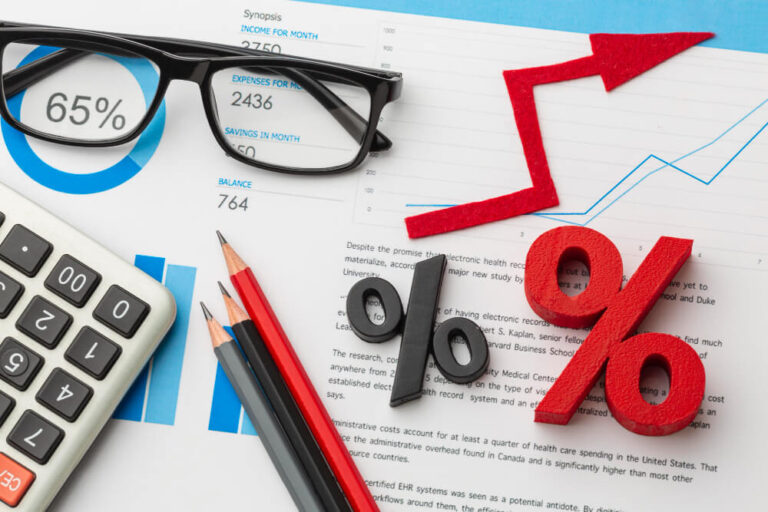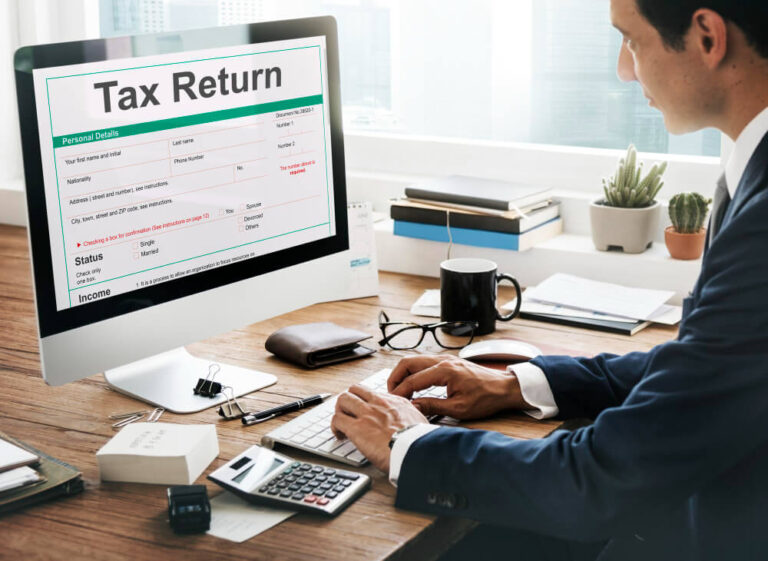VAT Audits: What to Expect – Guide on what happens during a VAT/tax audit and how to prepare
Value Added Tax (VAT) audits can seem intimidating for businesses that have never gone through the process before. However, being prepared and knowing what to expect can help reduce stress and ensure compliance. This comprehensive guide outlines everything you need to know about VAT audits, from how they are initiated to the audit process and how to get ready.
Table of Contents
What Triggers a VAT Audit?
There are several reasons why a business may be selected for a VAT audit, including:
- Random selection – Some audits are random and not based on specific risk factors. All businesses have a chance of being randomly selected.
- Data mismatches – If there are inconsistencies between VAT returns and sales/purchase data, it can trigger an audit.
- Large VAT repayments – Businesses claiming unusually large VAT refunds often get audited to verify if the claims are valid.
- Business or sector risk – Certain sectors, like construction and wholesale/retail have higher audit risks. High-value businesses also get more scrutiny.
- Previous issues – If your business has been flagged for problems in prior audits, you are more likely to get audited again.
- Complaints – If a complaint is filed against your business by suppliers, customers, or competitors alleging tax evasion, it may prompt an investigation.
The VAT Audit Selection Process
UK VAT audits are primarily conducted by Her Majesty’s Revenue and Customs (HMRC). There are a few stages in their audit selection process:
- Identification – HMRC uses computer systems and algorithms to analyze submitted VAT returns and flag risks.
- Screening – An HMRC officer reviews the flagged cases to verify the need for an audit.
- Selection – Businesses selected for audit receive a VAT Audit Notice Letter informing of the audit.
- Scheduling – The business and HMRC agree on timing for information requests and site visits.
- Audit – After the process is scheduled, the actual VAT audit begins.
What Happens During a VAT Audit?
The VAT audit process typically involves these key stages:
Initial Information Request
After you receive the VAT Audit Notice, the first step is normally an information request from HMRC auditors. This may include:
- VAT account information – Previous VAT returns and financial records related to VAT payments.
- Sales and purchase info – Invoices, contracts, stock records and other data to cross-check transactions.
- Policies and procedures – Accounting procedures, record-keeping practices and other internal systems.
- Bank statements – Statements may be reviewed to verify cash transactions.
- Supply chain info – Details about your suppliers and vendors.
The extent of information requested depends on the reasons for audit and risk factors identified by HMRC. All information has to be provided within 30 days or by the deadline specified.
Site Visits
The HMRC auditors may also conduct a site visit as part of the VAT audit. This involves visiting the business premises to:
- Verify physical records and bookkeeping information provided.
- Interview management and accounting personnel about VAT accounting practices.
- Review inventory and assets purchased to confirm transactions.
- Inspect facilities to validate business operations and transactions.
- Examine on-site record storage and security procedures.
The site visit is scheduled beforehand in consultation with the business. The duration can range from a few hours to multiple days depending on the audit scope.
Audit Findings Report
After reviewing the submitted records and site visit, the HMRC team prepares an audit findings report. This outlines:
- Their assessment of the company’s VAT accounting and payments.
- Any underpayment or overpayment of VAT discovered.
- Recommendations for improving compliance.
- Details of any penalties, interests or surcharges levied for tax discrepancies.
The business has 30 days to respond to the report either accepting or challenging the findings. Supporting information must be provided to dispute any findings.
Resolution
The final stage involves resolution of the audit and any actions required based on the final audit conclusions:
- Additional VAT payment – If underpayment is discovered, you may have to pay the outstanding VAT along with interest and penalties.
- VAT refund – In case of overpayment, you will receive a VAT refund from HMRC.
- Process improvements – Implementing changes to improve VAT accounting based on auditor recommendations.
- Follow-up audits – In some cases, periodic follow-up audits may be scheduled to verify ongoing compliance.
The total VAT audit procedure can take anywhere from 2 to 12 months depending on complexity. Maintaining good communication and cooperation with HMRC throughout can help expedite the process.
How to Prepare for a VAT Audit
Proper preparation is key to sailing through VAT audits with minimal disruption to your business. Here are some tips on how to get ready if you receive a VAT audit notice:
Review Records Thoroughly
- Gather and review all VAT-related financial records from the period being audited. This includes VAT returns, invoices, accounting books, and bank statements.
- Verify that your records are complete, accurate, and well-organized. There should be clear audit trails for all transactions.
- Identify any gaps or discrepancies in information and address them proactively before the audit.
- Digitize records if possible for easier sharing. But retain original copies securely.
Inform Key Staff
Alert your accounting, sales, procurement and other teams who handle VAT-related functions about the upcoming audit. Make sure they cooperate fully with the process and provide accurate information to auditors.
Organize Site Visit Logistics
If a site visit is scheduled, prepare your premises and staff accordingly:
- Inform the security team about the HMRC team’s planned visit and credentials.
- Designate a contact person to coordinate with the auditors during the site visit.
- Ready the required records and ensure proper access to inventory and transaction records for inspection.
- Make arrangements like meeting space for auditor interviews with staff.
Consult Your Tax Advisor
Discuss the audit notice with your tax consultant or accountant. They can help identify any issues in your VAT accounting and highlight areas the auditors may focus on. Take advice on addressing any problems to avoid penalties.
Strengthen VAT Controls
While preparing for the upcoming audit, also evaluate if any improvements are needed in your VAT accounting and compliance procedures. Implement necessary changes to optimize VAT processes.
Maintain Transparent Communication
During the audit, be transparent and cooperative in all communications with the HMRC team. Answer queries fully and honestly. Being combative or obstructing the process can increase scrutiny.
By taking these steps to get audit-ready, you can move through the VAT audit process with your accounts and compliance in order, minimizing business disruptions.
Common Concerns and FAQs around VAT Audits
Many businesses have some common questions and concerns when they have to undergo a VAT audit. Here are some of the key VAT audit FAQs addressed:
How long does a VAT audit take?
The duration of VAT audits ranges from 2 months to over 1 year depending on the records to be reviewed, site visits required, and issues identified. Maintaining good ongoing communication with HMRC can help expedite the process.
Can I appeal audit conclusions?
Yes, if you have valid grounds backed by records and documentation, you can appeal audit findings through a formal dispute resolution process. There are prescribed timelines for filing appeals.
Does a VAT audit mean I have done something wrong?
Not necessarily. Audits are also done randomly as part of standard procedures. Focus on cooperating fully with HMRC and use it as an opportunity to improve your VAT processes. Don’t get defensive.
What are the penalties for VAT non-compliance?
Penalties for VAT errors can include:
Interest on underpaid VAT
Surcharges up to 15% of underpaid VAT
Fines up to 100% of VAT due for evasion
Reputational damage and increased future audit likelihood
Can I claim costs incurred during a VAT audit?
Yes, reasonable costs directly incurred for complying with VAT audit requirements can be claimed as allowable expenses, reducing your tax liability. Maintain proper documentation.
Is there anything I shouldn’t share with VAT auditors?
You have to provide all information requested relating to VAT. However, take care not to share irrelevant business or customer data unnecessarily. Consult your accountant about any concerns.
Being well-prepared while following the best practices outlined in this guide will enable you to sail through the VAT audit process smoothly. Focus on using it as an opportunity to strengthen compliance and controls. Maintain transparent engagement with HMRC to bring the audit to swift resolution. Reach out to tax experts for guidance whenever needed. With some diligence and organized preparation, your business can emerge from the audit more VAT-secure.







